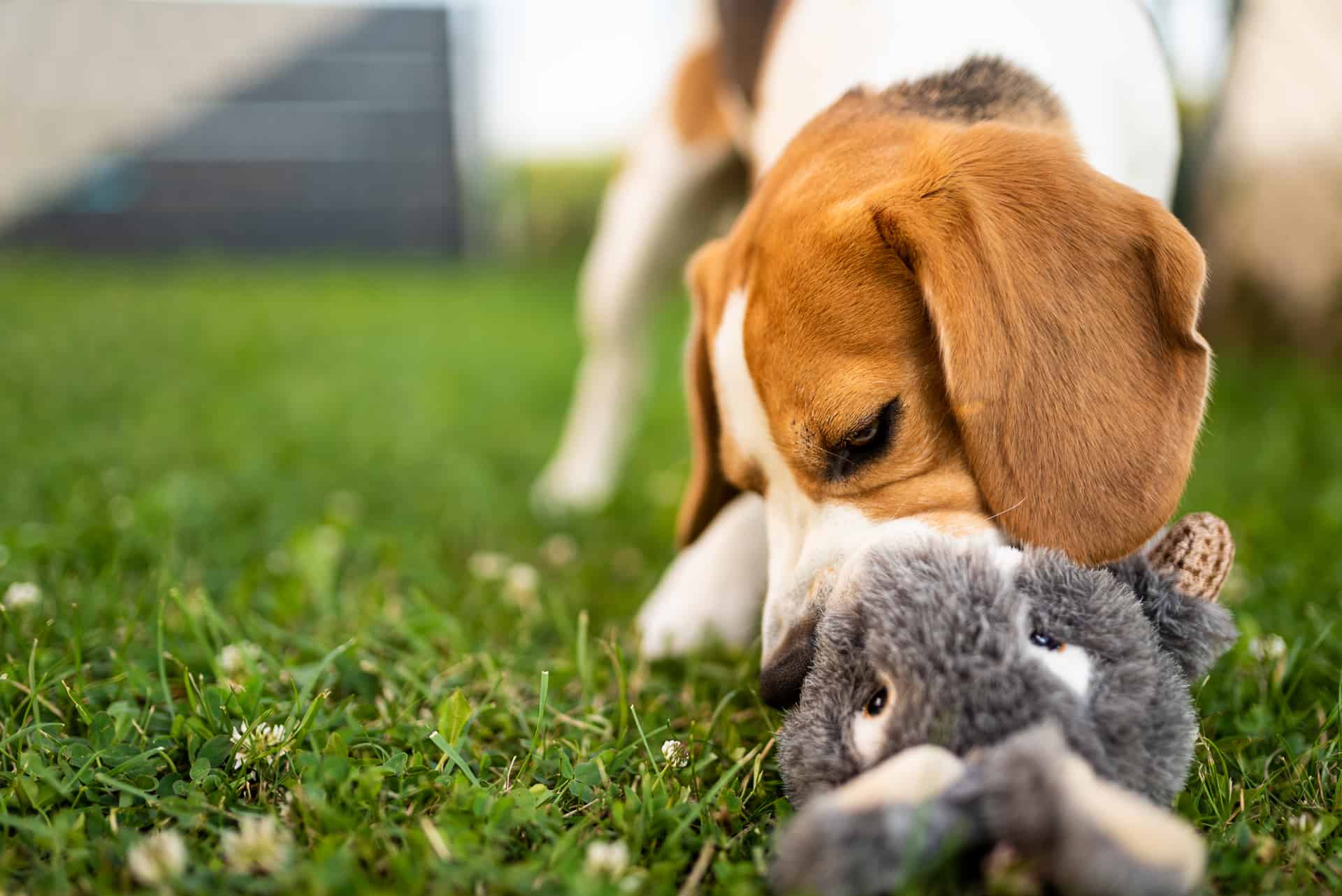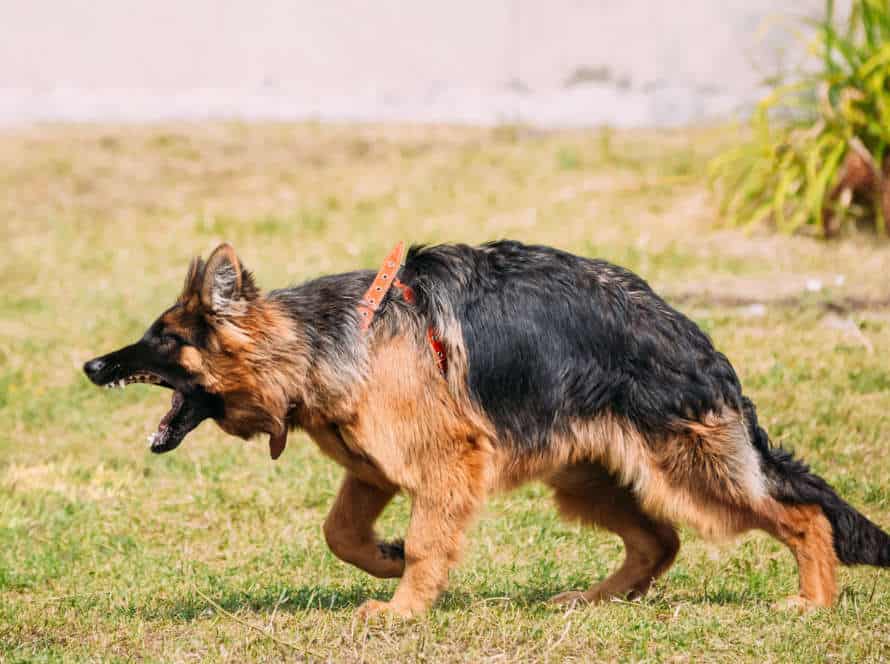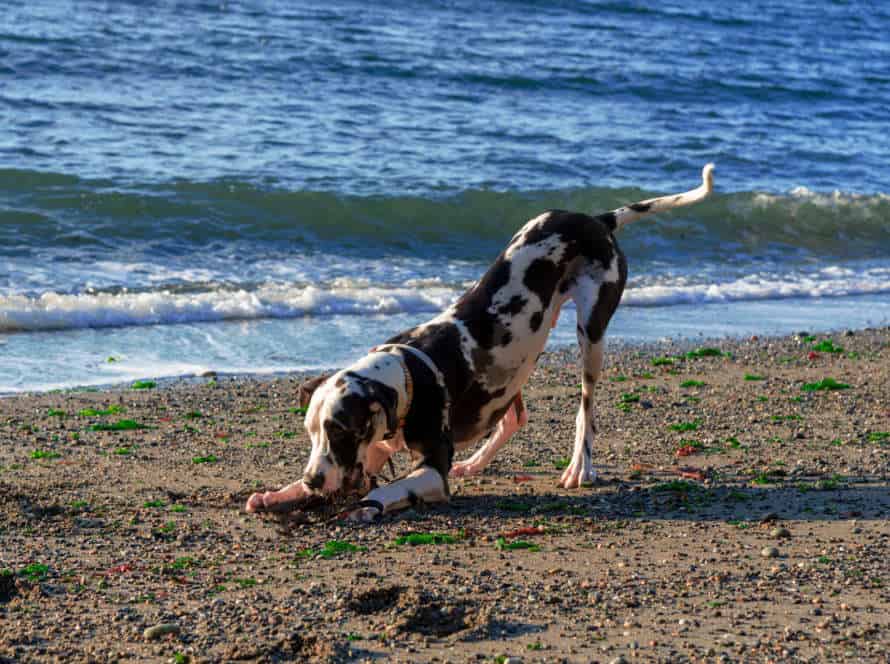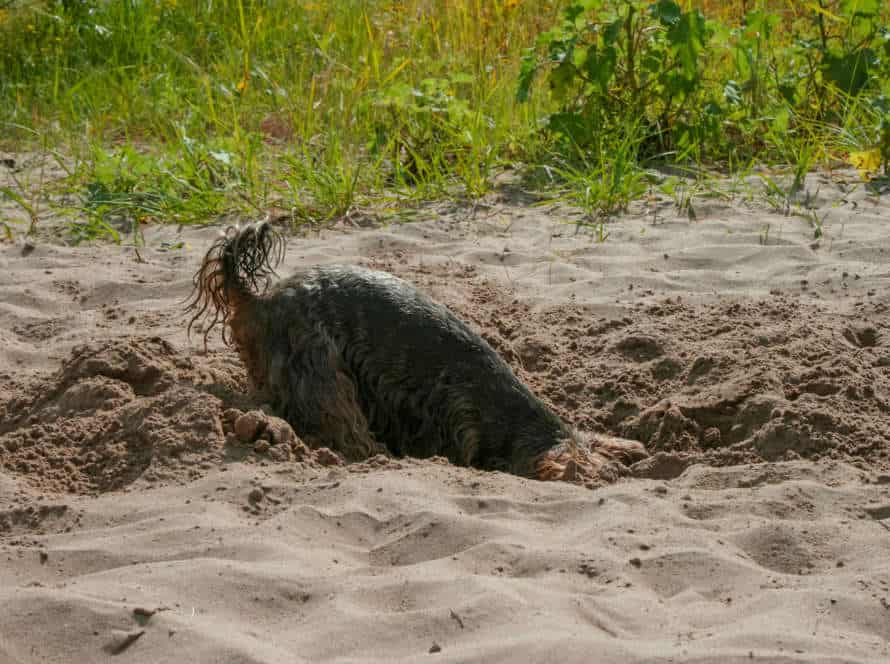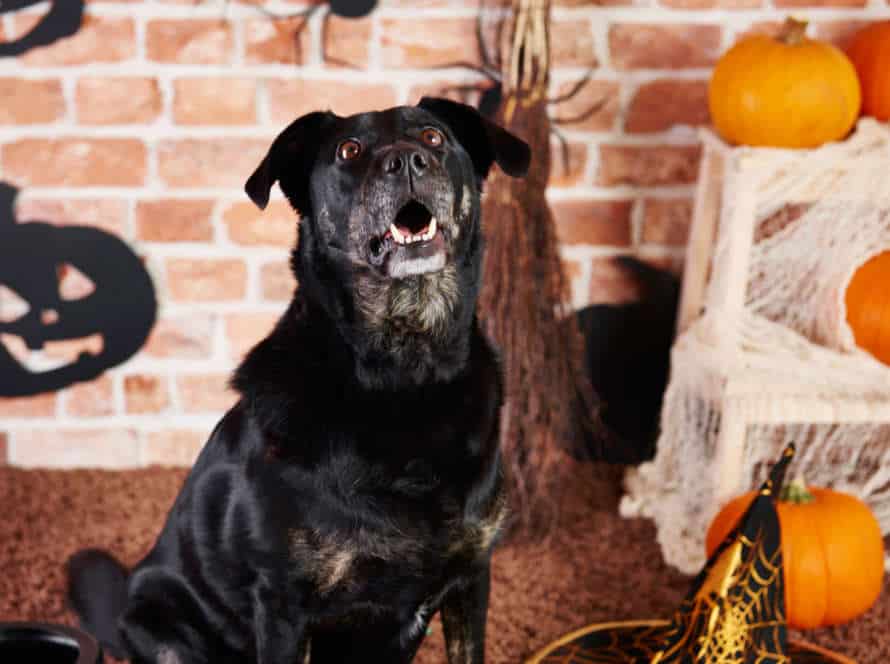The Power of Toys and Treats in Redirecting Digging Behavior
Toys and treats can be great for redirecting your pup’s digging. Here’s how you do it:
- Choose one spot in the yard and hide toys, chews, or treats in the soil.
- Reward your pup when they dig in the right spot with praise or treats.
- Say “no” or spray water to stop unwanted digging.
- Be consistent and patient. It takes time, but it’s worth it to protect your yard and make your pup happy.
Understanding Digging Behavior in Dogs
Dogs dig – and it’s often a nuisance to owners. To change their behavior, it’s important to understand why they dig. Toys and treats can be powerful tools for redirecting digging. This article will discuss how toys and treats can help redirect a dog’s digging behavior.
Why Do Dogs Dig?
Dogs may dig for many reasons. It’s important to figure out why they do it. Reasons can include: Boredom, Anxiety, Prey drive, or Hot spot.
- Boredom and Anxiety: Dogs may dig when left alone for too long. This is a way to pass the time or deal with stress. Giving them toys and treats that keep them mentally and physically active can help.
- Prey Drive: Some breeds are more prone to digging. They may be searching for rodents or just hunting.
- Hot Spot: If they’re in pain, they may find a cool spot in the yard to lie down.
To stop digging, give your dog toys and treats to occupy their attention. Make sure they get enough exercise and playtime to stop boredom and anxiety.
Types of Digging Behaviors in Dogs
Digging is a behavior that come naturally to dogs. There are four types of digging. Knowing them can help with redirecting the behavior.
- Comfort or relaxation digging. This happens on soft surfaces like beds or blankets. The motion can be soothing to the dog.
- Hunting or prey digging. If they hear or smell something they can’t catch, they might dig.
- Boredom digging. When left alone, dogs may dig just to pass the time.
- Anxiety digging. Dogs with anxiety, phobias or compulsive disorders may dig out of stress.
To redirect digging behavior, give dogs toys that stimulate foraging, digging and problem-solving. Make a digging pit with food, toys and treats in the sand. Encourage your dog to dig there.
Common Reasons Why Dogs Dig in Yards
Dogs have a knack for digging, which can be a problem for owners. Knowing why dogs dig and how to redirect them can help. Here are some common reasons:
- Boredom – Dogs left alone can get bored and start digging.
- Hunting – Digging can be their way to hunt rats, insects, or rabbits.
- Anxiety – Digging can help anxious dogs reduce stress.
- Cooling off – Digging can help them find a cool place to lay down.
Here’s how to redirect:
- Give stimulating toys and treats like puzzle feeders.
- Allow them to dig in a designated area and bury toys there.
- Exercise and play fetch to keep them busy.
- Interrupt digging with a firm “no” and redirect to a toy or treat.
Pro tip: If this doesn’t work, talk to a professional dog trainer or behavioral vet.
Redirecting Digging Behavior
Digging? It’s common among pups. But, it needs to be redirected. Toys and treats can help! Let’s discuss how to use them to redirect digging. Plus, the long-term good effects it can have. Woof!
Positive Reinforcement Training Techniques
Positive reinforcement is a training technique that focuses on rewarding good behavior. To redirect digging in your dog, equipment such as toys and treats must be provided. Place boundaries around areas you don’t want your dog to dig. If they do, redirect them towards their toys and reward them when they play with them. Treats, praises and rewards reinforce their positive behavior. Consistency is key! Be patient and stay consistent with the positive reinforcement techniques to reach your goal with your pet.
Using Toys to Redirect Digging Behavior
Got a dog with digging issues? Redirect ’em with toys and treats! Here’s what to do:
- Pick a spot in your yard for digging. Fill it with sand or soil. Bury toys and treats as incentive. Praise your pup when they dig in the right area.
- Give interactive toys. Like a Kong filled with peanut butter. Keeps them entertained and stops boredom-based digging.
- Add a digging box. A sandbox or container filled with soil. Where your dog can dig and forage.
It takes time and patience. But with consistent training and reward, you can stop their destructive digging.
Using Treats to Redirect Digging Behavior
If you’d like to stop your pup from digging, treats can really help. Here’s how:
- Pick a spot in your yard for your pup to dig. Loosen the soil with a small shovel.
- Put toys and treats in the hole.
- Use cues like “dig” and “go to your digging spot” to encourage your pup to dig there.
- Praise and reward your pup when they do.
- If they start to dig elsewhere, redirect them to the designated spot using the same cues and rewards.
With practice and rewards, your pup will learn that the spot is positive. Tip: Make sure to give your pup exercise and mental stimulation to stop boredom-related digging.
Best Toys and Treats for Redirecting Digging Behavior
Digging is a common issue for many dog owners. Tired of your pup’s digging? Give them toys and treats as an alternative!
Here are some of the top picks for redirecting their digging behavior. Keep your pup entertained with these awesome goodies!
Chew Toys for Dogs
Chew toys for dogs can be a great way to keep ’em busy! Here are some of the best chew toys and treats to distract your pooch’s digging:
- Kong Classic Dog Toy: Fill it with treats or peanut butter to give a yummy and stimulating chewing experience!
- Benebone Real Flavor Dental Chew: Bacon and chicken flavors help reduce tartar and plaque buildup while keeping your pup distracted.
- Nylabone DuraChew Textured Ring: Designed for heavy chewers, this toy will keep them busy and discourage destructive behavior.
- Bully sticks and rawhide bones: These classic treats will satisfy their innate urge to chew, plus promote dental health.
Giving your pup something they love can prevent them from digging and causing destruction. Remember to always supervise them while they’re chewing for their safety!
Puzzle Toys for Dogs
Puzzle toys for dogs are great for redirecting digging behavior and keeping their minds active. These toys test their problem-solving skills and give them a fun way to be rewarded for good behavior. Here are the top puzzle toys and treats for stopping dogs from digging:
- Outward Hound Nina Ottosson Dog Tornado Puzzle Toy: Your pup must figure out how to spin the layers to get the hidden treats.
- KONG Classic Dog Toy: Treats or peanut butter can be stuffed in this toy to engage your dog.
- ZippyPaws Skinny Peltz No Stuffing Squeaky Plush Toy: Stimulate your pup’s senses with its squeaky noise and fluffy exterior.
Remember to supervise your dog when they are playing with puzzle toys. This will keep them safe and stop them from accidentally swallowing parts.
Treats for Dogs
Toys and treats can help change your pup’s digging habits. Here are some of the top picks:
- Kong Classic Dog Toy: Fill this strong rubber toy with treats and your dog will stay busy trying to get the goodies inside.
- West Paw Design Zogoflex Tux: This chew-resistant toy can also hold treats, keeping your pup occupied for hours.
- Nylabone Dura Chew Textured Ring: This long-lasting chew toy cleans teeth and massages gums as they chew.
- Himalayan Dog Chew: This all-natural, long-lasting treat is made from yak or cow milk and has no preservatives, gluten, or additives.
- Bully Sticks: Dried beef pizzle treats are high in protein, low in fat, and a great way to keep your dog busy while redirecting their digging.
Remember, toys and treats can be useful, but it’s also important to figure out why your pup is digging – like boredom or anxiety. Pro Tip: Change up your pup’s toys and treats every now and then to keep them interested.
Training Tips for Redirecting Digging Behavior
Digging is an instinct for dogs. Sadly, it can wreck your yard or garden. A great way to redirect this without punishing your pup is to use toys and treats. You can reward good behaviors, and discourage the digging you don’t want. Here are some tips to help redirect your pup’s digging:
- Give them toys to play with.
- Offer treats when they act how you want.
- Let them explore in a designated area.
- Praise them when they do as asked.
Consistency is Key
Consistency is essential for redirecting a dog’s digging behavior. Toys and treats can help, but a consistent training regimen is essential.
Here are some tips:
- Set boundaries – decide where it’s okay to dig, and where not.
- Offer alternatives – give your dog a sandbox or ‘digging pit’ and put toys or treats inside.
- Reward good behavior – when they use the designated area, praise and treat them.
- Be consistent – keep redirecting their digging, offering alternatives and rewarding them.
With patience and reinforcement, you can save your garden!
Start Small and Gradually Increase
Frustrated with your pup’s digging habit? Take small steps to redirect their behavior. Start by setting apart a part of your yard for them to dig in. Place toys and treats there to coax them to play and dig in that area. Increase the playtime and training bit by bit, rewarding good behavior each time. Redirecting the digging will take some time and efforts, but with consistent training and positive reinforcement, your pup will soon understand the appropriate and inappropriate places to dig.
Reward Good Behavior
Rewarding good behavior is key to redirecting digging in dogs. Toys and treats can help! Here are some tips:
- Positive reinforcement: Praise and reward your pup when they stay away from the garden beds or dig in the spot you’ve chosen.
- Teach them what is ok: Give them toys to chew and dig with in the spot you’ve chosen. Supervise them as they learn.
- Make it attractive: Bury a toy or treat your dog likes in the spot you’ve chosen.
- Be consistent: Training takes time and patience. Consistently reward good behavior.
Pro tip: Sandboxes or other designated areas for your pup to dig in will make it clear what areas are ok to dig.
When to Seek Professional Help for Digging Behavior
Toys and treats can be helpful in redirecting negative digging behavior. But when they don’t work, it’s time to get professional help. When do you need to seek professional help for a dog’s digging? This section will explore that.
Signs That Your Dog’s Digging Behavior Is a Bigger Problem
Digging is natural for dogs. But, it can become a problem. Here are warning signs that professional help is needed:
- Dog is digging, destroying property like furniture and plants.
- Dog is hurting themselves or paws while digging.
- Dog digs obsessively, even when you’re with them or taking them on walks.
- Dog is digging under fences and escaping.
If these signs appear, seek help from an experienced dog trainer or behaviorist. Redirect digging behavior with toys and treats. Also, address the root cause of the behavior to prevent it from happening again. Pro Tip: Give your dog plenty of mental and physical stimulation with toys and activities.
The Role of a Professional Dog Trainer in Redirecting Digging Behavior
Dogs love to dig. But, if it’s too destructive or excessive, it’s time to call a professional dog trainer. A pro will assess the behavior, and use treats and toys to redirect it. They’ll also help your pup learn good habits with positive reinforcement. If the digging is causing harm or a safety risk, you must get help right away. A professional dog trainer can turn their natural instincts into new healthy habits.
Other Factors That May Be Contributing to Digging Behavior
Digging in dogs can be from various causes – boredom, interest, anxiousness, or to find a cool spot to rest. But if your pet over-digs, it can harm your yard and create risks for them. If toys and rewards don’t help, you should get professional help.
A pro dog trainer or behaviorist can assess your pet’s behavior and make a plan that works for both you and your pet. They can figure out why your pup is digging and make a training program to change their behaviour.
Before going to a professional, make sure your pup has enough exercise, toys and safe spots to play. Also, you could use positive reinforcement techniques to get your dog to dig in certain areas.
Tip: Stimulate your pup’s mind and keep them busy by playing games and activities with them. Dogs are social animals and require stimulation to stay fit and content.
Frequently Asked Questions
1. How can toys and treats help redirect a dog’s digging behavior?
Toys and treats can distract a dog from digging by providing an alternative behavior to engage in. Chew toys, puzzle toys, and interactive toys can keep a dog’s attention and satisfy their natural urge to chew and play. Treats can also reward desired behavior and reinforce positive actions.
2. What type of toys are best for redirecting digging behavior?
Toys that keep a dog’s attention for longer periods of time, such as puzzle toys, are especially effective at redirecting digging behavior. Chew toys and interactive toys can also be helpful. It’s important to choose toys that match your dog’s preferences and energy level.
3. Can treats alone stop a dog from digging?
Treats alone are not always enough to stop a dog from digging. However, treats can be a helpful tool in redirecting a dog’s behavior. It’s best to use treats in conjunction with other methods, such as providing appropriate areas for digging or using toys to distract the dog.
4. How can I teach my dog to use toys and treats as a behavior redirection tool?
It’s important to start by introducing your dog to the desired toys and treats in a positive and rewarding way. Offer praise and treats when your dog shows interest in the toys, and gradually increase the amount of time they spend playing with them. You can also use treats to reinforce positive behavior and redirect unwanted behavior.
5. Will toys and treats work for all dogs?
While toys and treats can be effective at redirecting digging behavior in many dogs, they may not work for every dog. Some dogs require more intensive training and behavior modification to stop digging behavior. It’s important to consult with a professional trainer or behaviorist if you’re having trouble with your dog’s behavior.
6. How often should I use toys and treats to redirect my dog’s digging behavior?
Toys and treats can be used as a consistent tool to redirect digging behavior, but it’s important to balance their use with other forms of training and behavior modification. Using toys and treats too frequently can lead to reliance on them and may not ultimately solve the problem. It’s important to work with your dog consistently and positively to modify their behavior over time.

